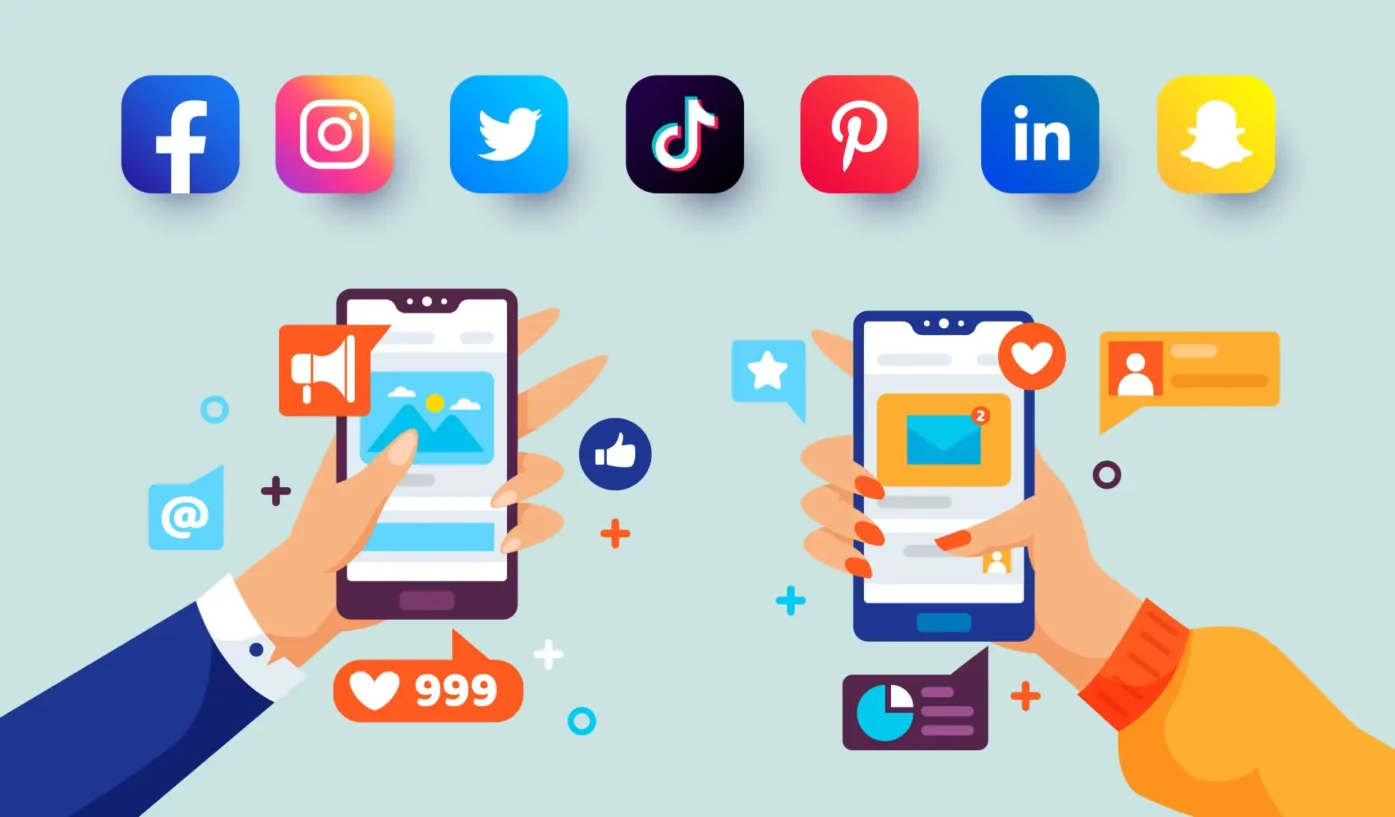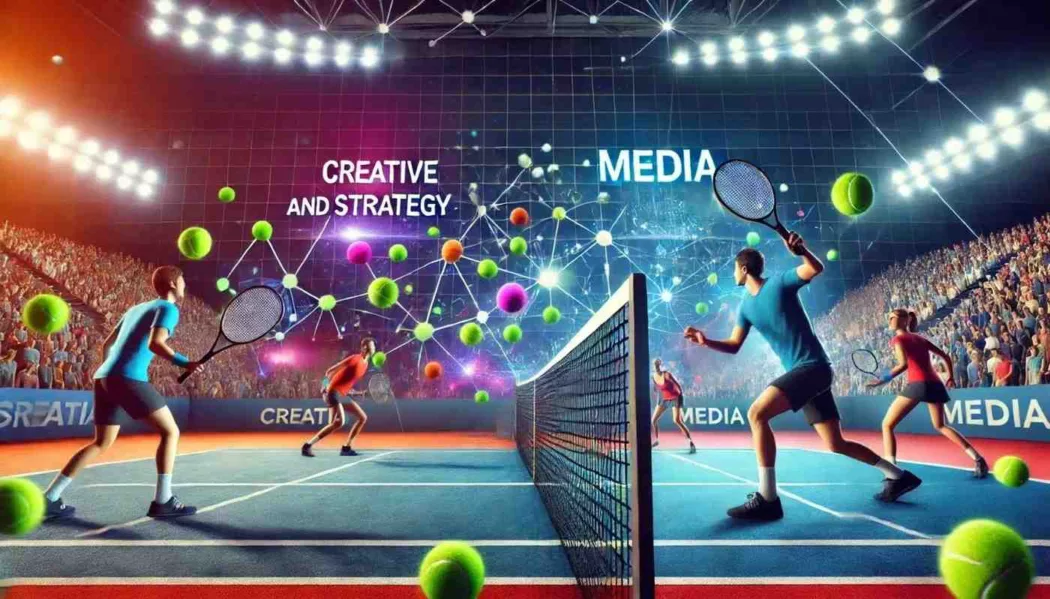How Will ChatGPT Change Digital Marketing?
18.12.2022Learn about AI’s role in content, customer engagement, and marketing strategies. See insights for integrating ChatGPT into your marketing efforts.

Artificial Intelligence (AI) is reshaping the world of digital marketing, offering unprecedented opportunities for innovation and efficiency. Among the plethora of AI tools, ChatGPT emerges as a standout, revolutionising how marketing professionals approach content creation, social media strategies, and overall digital engagement.
What is ChatGPT?

At its core, ChatGPT is an advanced language model developed by OpenAI. This tool leverages the power of machine learning and natural language processing to understand and generate human-like text. ChatGPT’s evolution marks a significant leap in AI technology, moving from simple automated responses to complex content generation and decision-making processes.
ChatGPT’s role in marketing has become increasingly vital. It transforms how marketers approach content creation, injecting speed and scalability into processes that traditionally require significant human effort. Utilising ChatGPT for social media strategy, businesses can craft personalised content that resonates with their audience, enhancing engagement and fostering brand loyalty.
Moreover, ChatGPT’s integration into marketing automation systems heralds a new era of efficiency. The AI’s ability to analyse data, predict trends, and create content empowers marketers to automate repetitive tasks, freeing them to focus on more strategic initiatives.
ChatGPT is not just an AI tool. It’s a game-changer in digital marketing strategies, offering a blend of creativity, personalisation, and efficiency. As the digital marketing landscape continues to evolve, the significance of ChatGPT in crafting compelling, innovative, and effective marketing strategies is becoming increasingly evident.
ChatGPT’s Impact on Digital Marketing

Content Creation: Streamlining and Enhancing Development
ChatGPT is revolutionising content creation in digital marketing, enabling the rapid generation of varied content, including blog posts and social media updates. As a marketing coordinator, Hayley Mollett highlights ChatGPT’s role as a ‘marketing assistant,’ aiding rather than replacing marketers. Tasos Banioras, a digital marketing manager, cautions that while ChatGPT is a valuable tool for sourcing ideas and inspiration, critical thinking is essential to avoid homogenised content.
Personalisation
ChatGPT’s ability to analyse data and generate insights significantly boosts personalisation in marketing. Kacper Rafalski from Netguru emphasises ChatGPT’s capacity to personalise marketing messages to an unprecedented degree. As Carlos Barros and Chris Morris noted, this technology facilitates deeper analysis of customer data like purchase history and browsing behaviour, enabling highly personalised recommendations.
Customer Engagement
Marc Hardgrove, CEO of an SEO platform, and Rahul Vij, CEO of a digital marketing agency, acknowledge ChatGPT’s potential in creating custom chatbots and enhancing real-time customer engagement and satisfaction. ChatGPT’s human-like responses and personalised recommendations could lead to improved customer retention and increased sales, as noted by Dmytro Sokhach, founder of a business development firm.
Ethical Considerations and Challenges

Potential for Deception and Manipulation
The primary ethical concern with using ChatGPT in digital marketing is the potential for deception, as customers might believe they are interacting with humans. This raises questions about the ethicality of AI systems influencing customer decisions and potentially pushing them toward specific products or services.
Privacy and Data Protection Concerns
The use of ChatGPT raises significant questions about consumer privacy and data protection. As these systems learn from the data they are exposed to, they can collect and store substantial amounts of personal information. It is crucial to ensure that this data is protected and that consumers are informed about how it is used. Ensuring the system’s security, data usage transparency, and compliance with data protection laws and regulations is vital.
Practical Strategies for Integration

Complement AI with Human-Created Content
AI-generated content should be reviewed and refined for accuracy, relevance, and alignment with your marketing objectives. Given that over 56% of firms identify inaccuracy as a risk with generative AI, it’s crucial to balance AI efficiency with the nuanced understanding of human writers, especially for creative or emotionally resonant content.
A/B Testing for Optimal Performance
When using multiple versions of AI-generated content, conducting A/B testing can help identify which resonates best with your audience. Implement the most effective content in your marketing campaigns.
Performance Monitoring and Analysis
Regularly track engagement, click-through rates, and conversion rates of AI-generated content. This will help assess its effectiveness and guide future strategies.
Iterative Improvement
Continuously refine ChatGPT prompts and content based on performance data and customer feedback. Iteration is crucial in enhancing outcomes over time.
Legal and Ethical Compliance
Familiarise yourself with laws and regulations pertinent to your industry, like GDPR and CCPA for data privacy and FTC guidelines for advertising. Always handle customer data responsibly and make accurate, verifiable claims in your marketing content.
The Future of AI in Marketing

Predictions and Trends
AI in marketing is expected to evolve towards more sophisticated personalisation, predictive analytics, and automated customer journey mapping. AI tools will increasingly be used for market research and trend analysis.
Long-Term Implications for Businesses and Marketers
The growing reliance on AI will necessitate a shift in skills and strategies for marketers. Businesses will need to focus more on data analytics and ethical AI use. Marketers must also keep up with evolving AI technologies to stay competitive.
Ethical Considerations
As AI becomes more prevalent in marketing, ethical considerations will take center stage, particularly regarding consumer privacy and data usage. Marketers must ensure transparency in how AI tools are used and how consumer data is handled.
Conclusion
In the evolving world of digital marketing, ChatGPT stands as a beacon of innovation. It has reshaped content creation, enabling marketers to produce diverse and personalised content swiftly. For social media strategies, ChatGPT offers tailored, engaging communication.
Customer service enhances interactions with responsive and nuanced chatbots. Moreover, AI’s role in marketing automation streamlines operations, freeing marketers to focus on creative and strategic tasks.
If you want to explore how ChatGPT can revolutionise your marketing strategies, contact us at REBORN. We’re committed to guiding you through the AI landscape to elevate your marketing game.
Frequently Asked Questions (FAQs)
How does ChatGPT enhance digital marketing strategies?
ChatGPT improves content creation, personalises marketing messages, and automates repetitive tasks, making marketing efforts more efficient and effective.
Can ChatGPT manage social media strategies?
Absolutely. ChatGPT can generate engaging content and responses, helping maintain an active and personalised social media presence.
What are the ethical considerations in using ChatGPT for marketing?
Key concerns include ensuring transparency in AI interactions, avoiding deceptive practices, and responsibly handling customer data.
How does ChatGPT fit into marketing automation?
ChatGPT streamlines customer queries and content generation processes, allowing marketing teams to focus on more complex tasks.
Is AI-generated content as compelling as human-created content?
AI-generated content can be highly effective for a more authentic and engaging output, especially when blended with human creativity and oversight.









